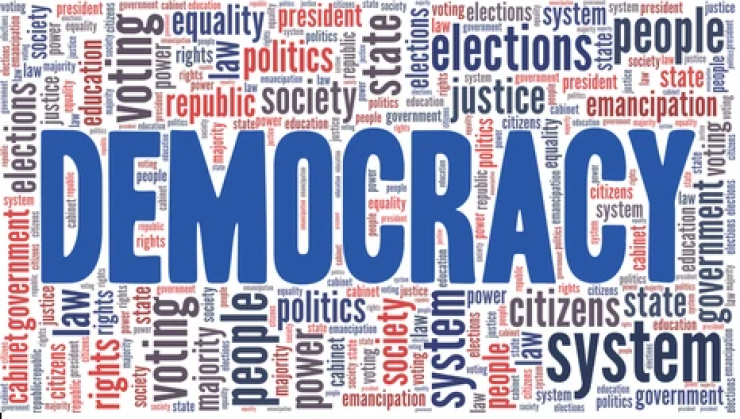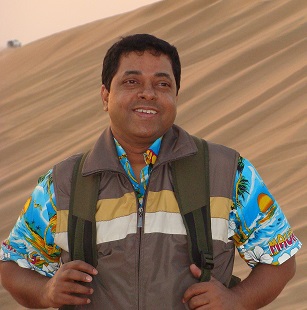
Democracy is the rule by the people. Democracy is a form of government in which the rulers are elected by the people.
World public opinion strongly favors democratic systems of government.
The notion of democracy has evolved over time considerably. The original form of democracy was a direct democracy (in which the people have the authority to deliberate and decide legislation). The most common form of democracy today is a representative democracy, where the people elect government officials to govern on their behalf such as in a parliamentary or presidential democracy.
Although democracy is generally understood to be defined by voting, no consensus exists on a precise definition of democracy. "There are as many different forms of democracy as there are democratic nations in the world." One chief factor common to all democracies is that the government is chosen by the people.
Prevalent day-to-day decision making of democracies is the majority rule. In reality there is no True Democratic Country in the world today. I think in modern representative democracies, 3 important changes are necessary to make it a ‘True democracy’:
1) Choosing a representative (candidate) with absolute majority.
Some democratic countries divide their territories into electoral districts, each of which is entitled to a single seat in the legislature, the seat being won by the candidate who gains the most votes. In districts contested by more than two candidates, it is possible to gain the seat with less than a strict majority of votes (50 percent plus one). As a result, a candidate can manipulate the election (Low voter turnout, more fake candidates) and win with a minority of votes even though the majority of voters opposes; and a party that receives only a minority of votes in the entire country could win a majority of seats in the legislature.
2) Having some qualifications for the representative to stand for elections.
Many democracies allow anyone with any background and any number of political parties to stand in elections for a single seat in the legislature. Every job requires some qualification (academic or skill set). Since all elected representatives may have a fair chance of forming the government, and some may become ministers and occupy top posts, it makes sense that they have some qualifications.
3) Recalling an elected representative (If an elected representative is not found satisfactory by the voters).
In many democratic countries, once the representative is elected, there are no laws to recall the elected representative. Some of the elected representatives think they have powers and so they are untouchable till the end of their term or next elections. This belief will embolden them to take decisions which are beneficial to their own cause than for the people who elected them. They will indulge in practices to amass individual wealth and power. The voter can do nothing other than protest.
All the above 3 changes can only be implemented only with the help of Election Commission (An Election Commission is a body charged with overseeing the implementation of electioneering process of any country).
Since Legislature assumes the top position in the pyramid structure of the pillars of democracy (not cyclic structure) and their representatives are elected by the people, there should be a criteria and regulations by the Election Commission to filter and provide the right candidates for the voters to choose.
Elections take place in all levels - from village to entire country - and the Election Commission can play a very important role in providing the right candidates at all levels, thereby reduce corruption and make sure that the elected representatives, actually represent people’s interest.
The Legislature, the Executive, the Judiciary, and the Media have separate functions and powers. The Legislature (the Parliament and state Assemblies) make laws; the Executive (the government ministries, agencies, and bureaucrats) implement laws; the Judiciary (the Supreme Court, the High Courts, and various lower courts) uphold laws and Constitutional principles; and the Media (print, radio, TV, social media, etc) lend voice to the voiceless and influence in shaping public opinion.
In my opinion, like other Four pillars of democracy - the Legislature, Executive, Judiciary and the Media, Election Commission should be independent and it should be considered the Fifth pillar of democracy.
If there is no real separation of powers between the Legislative and Executive, people’s votes will have no real value.
The idea that these branches should be separate and independent is to ensure that no single person or group of people can amass too much power. Independently and together, these branches of government (or pillars of democracy) are crucial for the functioning of a country. And if these branches are separate and independent, the system can survive even if one branch fails (becomes corrupt, or is filled with incompetent people). One branch, as per the doctrine of separation of powers, cannot interfere with the others.
Democracy is good, but it needs changes in Modern Times.


Login To Leave a Comment